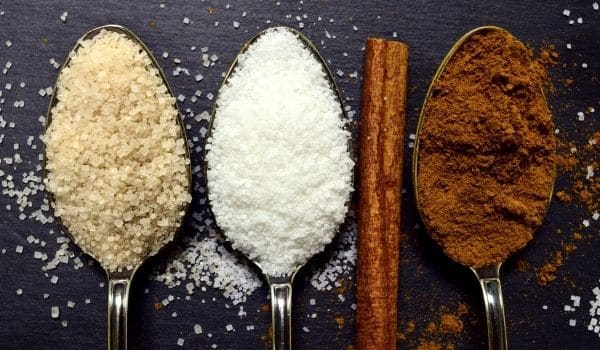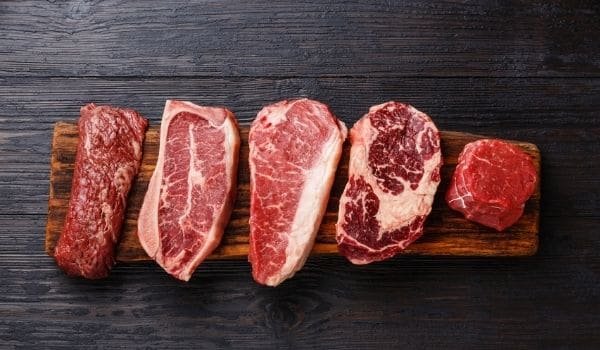Bloating can be an after-effect of any new diet you embrace since you are significantly making alterations to the way you eat and the foods you consume.
The same applies to the Keto diet.
Introducing ketogenic foods into your diet will drastically change your routine intake.
Bloated on Keto is a common occurrence, especially when switching to the low-carb diet for the first time. This experience can make you feel like your efforts are not bearing the needed results.
Bloating can engender pain, stress, and tightness in the stomach. It is something very annoying and discomforting. It is brought about by a handful of factors. The bloating resulting from the ketogenic diet is referred to as keto bloating.
That said, let’s look at how the keto diet may trigger bloating and the most appropriate ways to address it.
1. Overeating Carbs

Excessive consumption of carbs can cause multiple adverse side effects, such as headaches, bloating, weight loss impediment, and so on. Carbs also encourage water retention, which in return makes your stomach swollen and heavy.
To revert to ketosis, and re-embark on shedding off excess weight, cut down your carb intake, and in no time, you should experience a reduction in water weight translating to a reduction in bloating.
2. Food Intolerances

Food intolerance simply means poor digestion and as a result of it, undesirable feelings, such as bad gasses, bloating, and nausea, are bound to happen.
Although a considerable number of people have embraced the keto diet, its components are pretty different from that of regular food in that it contains low levels of carbs and fiber.
However, there are many problems to food intolerance than bloating. Further, it can bring about keto stomach pain, heartburn, tummy pain, and diarrhea.
The same can be triggered by the keto diet.
These issues are correspondent with one another; for instance, food intolerances can give rise to bloating. This is because the two rely on the digestive and metabolic systems of the body.
It is necessary to satisfy the demands of the body when on a keto diet plan to keep off food intolerances.
3. Excessive Sugar Alcohol

The keto diet is densely packed in sugar alcohol. These are the primary elements of toffees, protein bars, among other ketogenic foods.
The keto-friendly foods contain four essential sugar alcohol: erythritol, maltitol, sorbitol, and xylitol. Multiple studies have found that maltitol is no longer keto-friendly sugar alcohol as initially perceived.
These sugar alcohol have low contents of carbohydrates. This signifies that they can cause keto alcohol bloat because metabolism generates energy from carbs.
When you take keto food which is deficient in carbs, the body will be forced to produce energy from proteins and fats.
Since this is not a regular occurrence for your metabolism process, it creates commotions during the digestion process.
The inconsistencies in the digestive systems result in the production of some gasses or the production of extra air within the body. Consequently, keto bloating occurs.
4. Low Fiber Content

A Keto-friendly diet contains low contents of fiber.
Low fiber content means the food will take more time in the IG. It signifies that excessive fermentation of the food will lead to the overproduction of gas.
In addition, the gas will cause a feeling of swelling, tightness, among others. That is one way, the deficiency of fiber in a keto-friendly diet prompts keto bloating.
Fiber plays a critical role in the digestion process. Contrastingly, multiple pieces of research have confirmed that excessive amounts of fibers can also lead to bloating.
Sadly, the keto diet lacks the needed level of fiber to prevent bloating. This is very curious since fibers play a very crucial role in body fitness.
However, the intake ought to be moderate to stay in ketosis.
This can be fixed by incorporating low-carb fiber-rich foods into your diet.
Bottom Line
Keto-diet can engender bloating, and it can be extremely painful and challenging to cope with as it feels like an inflated stomach.
The fundamental causes of bloating in the keto diet are low levels of fiber and carbs.
For those on the keto diet plan, you need to satisfy the rest of the body’s requirements. Or else, it can result in food intolerances, indigestion, and ultimately bloating.